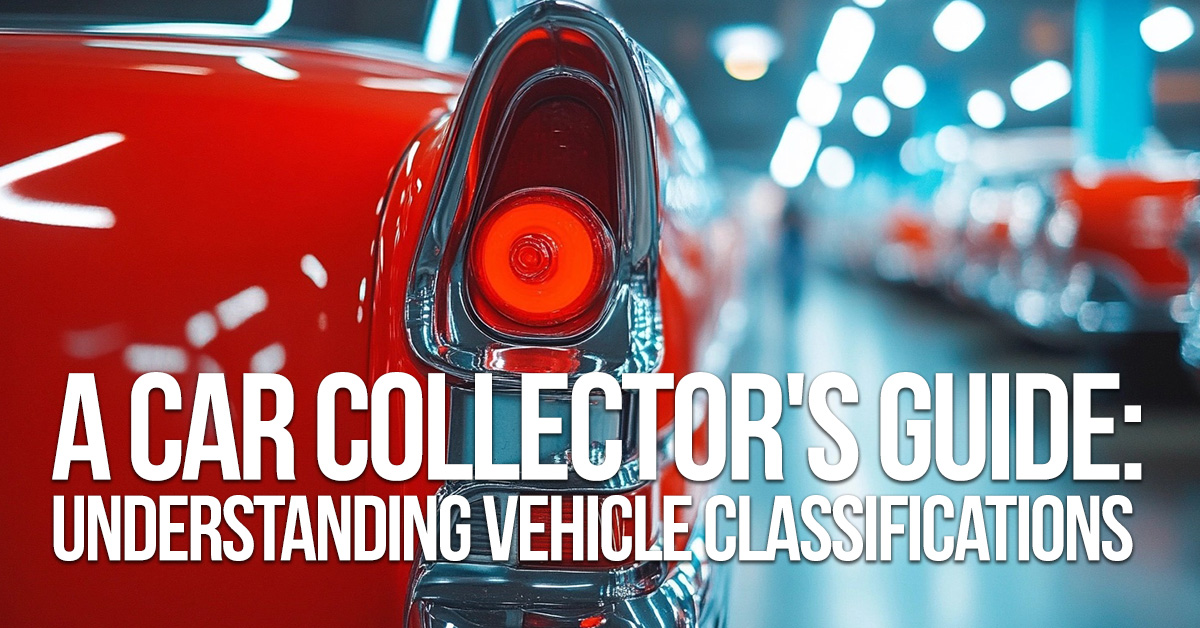A Car Collector’s Guide: Understanding Vehicle Classifications

A Car Collector’s Guide: Understanding Vehicle Classifications
The automotive world is vast and diverse, with a wide range of vehicle classifications. Understanding these categories can help you appreciate the history, value, and unique characteristics of different cars.
Here’s a breakdown of some common car classifications:
Vintage Cars:
- Definition: Vehicles manufactured before 1930.
- Characteristics: Often characterized by their unique designs, craftsmanship, and historical significance.
- Examples: Model T Ford, Duesenberg Model J
Antique Cars:
- Definition: Vehicles that are at least 45 years old.
- Characteristics: Often restored to original condition and prized by collectors.
- Examples: Classic Mustangs, Corvettes, and Cadillacs
Classic Cars:
- Definition: Vehicles that are 20 to 45 years old.
- Characteristics: Often sought after by collectors and enthusiasts.
- Examples: 1980s and 1990s sports cars and luxury vehicles
Historic Cars:
- Definition: Similar to antique cars, historic cars are typically over 45 years old and have significant historical value.
- Characteristics: Often preserved in original condition or meticulously restored.
Exotic Cars:
- Definition: High-performance, high-end vehicles with unique designs and advanced technology.
- Characteristics: Limited production, high price tags, and exceptional performance.
- Examples: Ferrari, Lamborghini, Bugatti
Muscle Cars:
- Definition: High-performance American cars, typically from the 1960s and 1970s, known for their powerful engines and distinctive styling.
- Characteristics: V8 engines, rear-wheel drive, and performance-oriented suspension.
- Examples: Chevrolet Camaro, Ford Mustang, Dodge Challenger
Collectible Cars:
- Definition: Cars that are highly sought after by collectors due to their rarity, condition, or historical significance.
- Characteristics: Limited production, unique features, or association with famous people or events.
- Examples: Classic Ferraris, vintage Porsches, and rare muscle cars
Insuring Your Special Vehicle
When insuring a classic, exotic, or collectible car, it’s important to have the right coverage. Standard auto insurance may not provide adequate protection for these vehicles. Special insurance policies are available to cover the unique needs of car collectors and enthusiasts.
If you own a special vehicle, contact an insurance agent who specializes in insuring collector cars. They can help you find the right policy to protect your investment.
Remember, understanding these classifications can help you make informed decisions when buying, selling, or insuring your vehicle.



